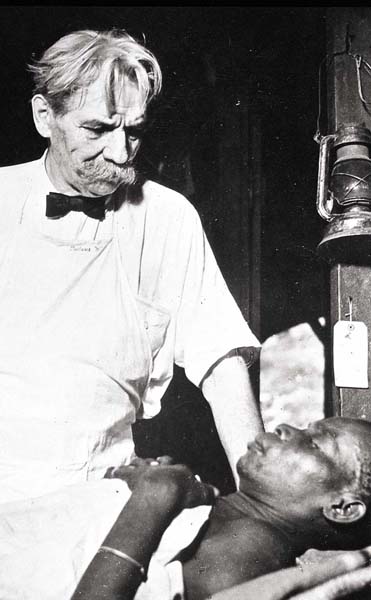Albert Schweitzer: Doctor, Musician, Theologian
Sidebar to: The Eschatological Jesus

At the age of 21, after studying in Paris, Berlin and Strasbourg, Albert Schweitzer (1875–1965) decided to devote the first 30 years of his life to art and learning; after that, he vowed, he would serve humanity.
The son of a Lutheran pastor, Schweitzer himself was licensed as a curate in 1899. In that same year he took his doctorate in philosophy at the University of Strasbourg, where he later taught in the theological college until 1913; as a theologian, he published a series of influential books on the world of the Gospels. During this period, Schweitzer also became known as a leading authority on Johann Sebastian Bach—about whom he wrote a biography—and as an organist and organ designer.
In 1905, Schweitzer began to prepare for his “other life”: He studied medicine, earned his degree in 1913 and left for west Africa with his wife, a nurse, to establish a missionary hospital in Gabon. Except for a few short-lived interruptions, Schweitzer spent his remaining 50 years in Africa fighting leprosy and sleeping sickness—a period of prodigious philanthropy that earned him the Nobel Peace Prize in 1952.
Already a library member? Log in here.
Institution user? Log in with your IP address.

